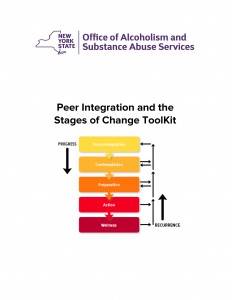 Non-clinical, peer-delivered recovery support services are being integrated into a wide variety of service settings, e.g., outreach programs of recovery community organizations, hospital emergency rooms, addiction treatment programs, recovery residences, collegiate recovery programs, and within the child welfare and criminal justice systems. Research to date on peer recovery support services suggest that such services are promising in elevating service engagement and long-term recovery outcomes (See HERE, HERE, and HERE), but the pace of integrating these services has far outpaced related research. As a result, many questions remain unanswered regarding these services. Until formal studies address some of these critical questions, we are left with a growing body of experiential knowledge on how such services can be best structured, delivered, supervised, and evaluated.
Non-clinical, peer-delivered recovery support services are being integrated into a wide variety of service settings, e.g., outreach programs of recovery community organizations, hospital emergency rooms, addiction treatment programs, recovery residences, collegiate recovery programs, and within the child welfare and criminal justice systems. Research to date on peer recovery support services suggest that such services are promising in elevating service engagement and long-term recovery outcomes (See HERE, HERE, and HERE), but the pace of integrating these services has far outpaced related research. As a result, many questions remain unanswered regarding these services. Until formal studies address some of these critical questions, we are left with a growing body of experiential knowledge on how such services can be best structured, delivered, supervised, and evaluated.
A new resource developed by the New York State Office of Alcoholism and Substance Abuse Services has just been released that deserves wide review. Peer Integration and the Stages of Change Toolkit provides an excellent overview of peer services, but it is most distinguished by its take on practical issues faced in the integration of peer recovery support services with existing service systems.
How can organizations best prepare for the integration of peer recovery specialists within their organizations?
What funding sources are being used to support peer-delivered services?
What is the range of services peer recovery support specialists are currently providing?
What are the typical qualifications and job descriptions of peer specialists?
What are suggested strategies for recruiting and screening peers?
What are the key areas of knowledge and skills included within pre-service training of peer recovery support specialists?
What service planning formats/tools are available to guide the delivery of peer recovery support services?
What approaches are suggested for the supervision of peer recovery support specialists?
What are some of the critical ethical and legal issues that arise within peer-delivered recovery support services?
How can peers working in the community best enhance their personal safety while performing their responsibilities?
These are just a few of the questions addressed in New York's just released Peer Integration and the Stages of Change Toolkit. I commend this document to everyone involved in the design and delivery of peer recovery support services. Copies of the Toolkit can be downloaded HERE.